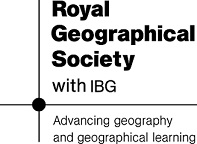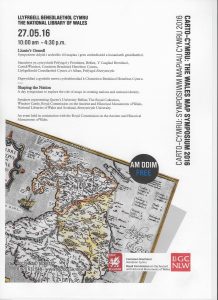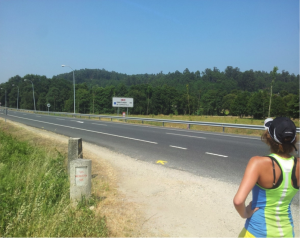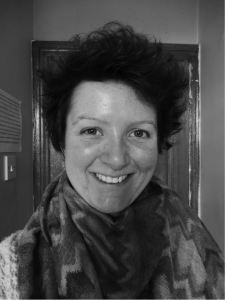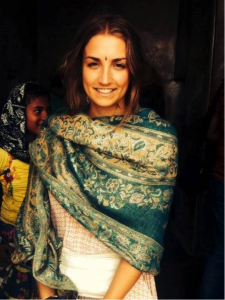Here is the finalised list of SCGRG sponsored sessions and abstracts for the RGS International Conference 30th August- 2nd September 2016.
Please contact the session organisers on each abstract for more information.
1) Sacred stuff: Material Culture and the Geography of Religion
Organisers: Ruth Slatter (UCL), Nazneen Ahmed (UCL) and Claire Dwyer (UCL)
Abstract
This session seeks discussion around the role of material culture in studying geographies of religion, faith and spirituality. Social and cultural geographers have offered critical insight into the use of material cultures, such as the processes of making and repairing material things, as a way of understanding geographical processes, networks and knowledges (Cook & Harrison, 2007; Gregson et al, 2007; Ogborne, 2007). In geographies of religion a material approach has been creatively developed to discuss buildings (Connelly, 2015 and Edensor, 2011) but also to understand the role of objects and places in shaping spiritual engagements (Holloway, 2003; Della Dora 2011; Hill 2007).
This session seeks to extend the critical insights of this work to understand how the material things made, used and appropriated in religious communities (and beyond them) can provide insights into everyday practices, congregational translations of religious practices and experiences of the spiritual, social and cultural aspects of religious communities. Drawing on concepts of materiality developed within anthropology and design history (Miller, 2010; Ingold, 2012; Lees-Maffei et al, 2010), we are interested in exploring in this session how material things offer alternative narratives about religious communities and what religion means to its adherents; how material objects are designed, created, appropriated or travel; what affects the decay, damage and necessary repair and maintenance of religious things have on religious engagements and experiences; what role material things play, and have played, in both the contemporary geographies and past histories of religious institutions and spaces.
2) Encountering Austerity
Co-sponsoring organization: The Economic Geography Research Group
Name of conveners:
Ruth Raynor R.I.Raynor2@durham.ac.uk; Esther Hitchen E.J.U.Hitchen@durham.ac.uk
Abstract
We seek to explore the multiple and networked relations of austerity (however conceptualized) by considering how austerity is encountered in everyday life. What are the specific relations between austerity and partly connected social-spatial formations and processes for example neoliberalism, family and friendships, banking and debt, housing, organisations of paid and unpaid work? How is the spatiality of the everyday made and remade in relation to austerity, in parks, staff rooms, homes, a twitter feed, through an atmosphere or mood and so on? And how might we engage with how austerity is felt or (or not) as a series of encounters across multiple spaces? How does austerity effect (interrupt, suspend, intensify or disassemble) existing infrastructures, ideologies and processes that meet and fold into everyday life? When do the effects of austerity fail to register as austerity in or beyond their scene or moment of encounter and why? By paying attention to austerity’s entanglement with other processes and formations we seek to better understand it’s multiplicity, it’s incoherence, it’s moments of consolidation, it’s temporal, rhythmic and affective life. Relatedly, we seek to consider how anti-austerity activism works or attempts to work as a strategy of consolidation to produce shared encounters with austerity. If austerity is entangled in other formations and processes, how to practice critique in relation to it? How to research and/ or represent austerity even as it is lived as a series of fragmented and fragmenting forces. Conversely, when and/or how is austerity related to in everyday life as a shared event, as a political ideology, and/or as a centrally implemented fiscal strategy, as it produces sites and scenes, for example food-banks, abandoned development projects, or queues outside of financial institutions?
Organisation of session: Two sessions will enable us to cover the two-related foci. In the first session we will call for work that differently engages with how the cuts and reforms of austerity are encountered amidst other flows and networks that constitute everyday life. In the second session we will think more about how this informs, challenges and folds into an anti-austerity politics, including research, creative practice and other forms of activism. In each session we will take four twenty- minute presentations with time for questions and we will welcome non-traditional presentation formats but do not require any technical support for this.
3) Cultural Geologies: Working with stone in the geological turn
Dr Rose Ferraby: rf281@exeter.ac.uk
Dr David Paton: dap207@exeter.ac.uk
Abstract
This session will explore the newly emerging field of cultural geology (Ferraby 2015; Paton 2015; Romanillos 2015). Growing from studies of the material, temporal and cultural worlds of stone, the cultural geological perspective offers new ways of thinking about our relationship with the land. Consideration of geological and human processes, can establish more nuanced understandings of the characteristics and foibles of different stone. Different modes of working stone can reveal complex narratives that weave together geological temporalites and strata with human histories. Telling the stories of stone reveals the nature of our connections with the land, and with each other. The broad temporal view, from millions of years to personal encounters, provides a way of thinking about our relationships with materials and the land that gives greater perspective on issues of change in the future. Cultural geology offers a grounded, material and practical perspective on the geological turn, offering an alternative to the sometimes over-theorised realms of the ‘anthropocene’.
This session encourages creative, multi-disciplinary approaches to cultural geology. It will encourage the involvement of those working between disciplines to contribute to the discussion practical modes working with stone.
Session Organisation:
Two sessions, plus a lunchtime slot for stoneworking (if a space can be negotiated with the RGS)
Sessions will be 4x20min presentations plus 20mins discussion.
The lunchtime slot will be a stoneworking demonstration
Session Arrangements:
Audio-visual set up will be needed for presentations that involve sound, video etc.
Space for stone working will need to be sought at the RGS.
4) Provocations and Possibilities of ‘Nexus Thinking’: Postgraduate Snapshots
Name of Co-sponsoring groups:
Postgraduate forum
Katie Ledingham, University of Exeter, KAL210@exeter.ac.uk
Phil Emmerson, University of Birmingham, PXE991@bham.ac.uk
Abstract
The aim of this session is to explore the different ways in which postgraduate researchers in Social and Cultural Geography are engaging with and attending to the manifold provocations posed by the concept of Nexus Thinking. ‘Nexus thinking’ is taken here to refer to the varying ways in which human geographers are working to consider the entanglements and interconnectivities between environmental and social domains.
We are encouraging postgraduates to present a brief ‘snapshot’ of their work (whether a photograph, a quotation, a field diary entry, an image of an object, or mini-video clip) as a focus for 5-10 minute contributions that explore the ways in which their theoretical and/or methodological interventions expand or restrict the propensity for and the possibilities of nexus thought.
It is envisaged that the snapshot will be the main artefact around which each contribution is orientated. We encourage participants to fully utilise their snapshots in ways which further deepen and enrich the developing trajectories, tensions, and textures associated with the mobilisation of the Nexus Thinking.
1 timeslot
7 X 5-10 minute presentations followed by a discussant and ‘round table’ group discussion
5) Geographies of Outer Space
Co-sponsoring groups -Historical Geography Research Group
Social and Cultural Geography Research Group
Oliver Dunnett (Queen’s University Belfast): o.dunnett@qub.ac.uk
Andrew Maclaren (University of Aberdeen): andrew.maclaren@abdn.ac.uk
Abstract
This session aims to explore current and future potential for research into the geographies of outer space. There has been a small but burgeoning field of geographical enquiry into outer space (Cosgrove, 1994; MacDonald, 2007; Lane, 2011; Dunnett, 2012; Sage, 2014). Here, researchers have investigated the ways in which outer space has provided a focus for a variety of geographical modes of imagination, including whole-earth environmentalism, nationalist / imperialist visions, spaces of scientific and technological rivalry, and domestic cultures of night-sky observation. If geographers are to continue to push for nexus thinking in arts and science collaborations, then outer space presents one possible focus for this to happen.
We welcome papers that seek to engage with, build upon and challenge current thinking in the ‘geographies of outer space’. These are not limited to, but could include, engagements with the materialities and histories of spaceflight in specific national contexts, representations of outer space within (popular) cultural imaginations, considerations of how outer space relates to art and landscape, or reflections on counter-cultural engagements with outer space.
6) Urban Public Arts and Collaborative Production: Revisiting the Role of Universities in the Triple Helix¹
Dr Martin Zebracki, University of Leeds; Dr Saskia Warren, University of Manchester; and Professor Calvin Taylor, University of Leeds.
This panel invites scholars across disciplines as well as practitioners to critically discuss the role of universities in arts-based socially-engaged practices. Where consultancy in the public arts was once considered in tension with academic labour, Triple Helix¹ that is the nexus between research, industry, and policy is positioned at the lucrative cutting-edge of the academy vis-à-vis the urban knowledge economy and creative industries.
Our focus is on the critical role that universities play within Triple Helix alliances to design and execute arts for public spaces inclusive of sculpture, performance, (new) media, heritage, etc. The impact agenda and the stipulations of national and international research council funding agencies have moved away from a culture of patronage. They have substantially formalised the contributions the academy makes, or should make, to wider societies as a core function of academic labour (Pain et al. 2011). As resonated by participatory geographies (e.g.Macpherson et al. 2014), this raises critical questions about the nature and ethics of co-working and the (potential) impacts among the multiple actors involved in public arts projects as part of a broader legitimising narrative for the purpose of universities.
We invite critical accounts on how universities may speak to the very diverse micro publics that are understood from, firstly, an intersectionality framework (e.g. Gutierreza & Hopkins 2015) that includes holistic considerations of gender, age, ethnicity, class, religion, ability/disability, and so forth, and, secondly, a collaborative research-industry-policy context.
Number of session timeslots sought: 1
Indication of preferred organisation of session: 5 x 15min presentation, with 5min question for each (including policymakers and artists)
7) Nexus-Thinking the Network: Social Network Analysis, Digital Data, and Complexity in Cultural and Media Production Networks
Michael Hoyler, Department of Geography, Loughborough University, UK M.Hoyler@lboro.ac.uk
Allan Watson, Geography and the Environment, Staffordshire University, a.watson@staffs.ac.uk
Session abstract:
While there has been a great deal of attention paid within Geography to the localised spatial clustering of the cultural and media industries in particular ‘hot-spots’, our understanding of the social and economic complexities of cultural and media production networks, and the subsequent spatial manifestations of these networks, remains poorly developed. Furthermore, our ability to understand the scope and scale of these production networks has remained limited by a lack of extensive, quantitative analyses. The aim of this session is to ‘nexus-think’ the complex social and economic interdependencies within networks, so as to better inform methodologies and digital data collection strategies for extensive network analyses. The topics addressed within this session will include, but are not limited to, the following:
- Theoretical or empirical papers concerned with the complexities of networks of cultural and media production, especially those considering the interdependencies of cultural, social and economic ties.
- The application of Social Network Analysis methodologies, or other quantitative network analysis strategies, to the study of networks of cultural and media production, across a variety of spatial scales.
- Innovative visualisation strategies for complex social, cultural and economic networks.
- Challenges and opportunities for digital data collection for network analysis, especially data from social networks and ‘big-data’.
Number of session timeslots sought: 2
Session organisation:
Session 1: 4 x 20 min presentations, plus 20 min discussion
Session 2: 3 X 20 min presentations, plus 40 min panel discussion
8) Geographies of human trafficking and smuggling: navigating the traffic of migration, mobility and justice studies
For the consideration of: Population Geography Research Group; Social and Cultural Geography Research Group; Geographies of Justice Research Group
Matej Blazek (Loughborough University; m.blazek@lboro.ac.uk), James Esson (Loughborough University; j.esson@lboro.ac.uk), Darren Smith (Loughborough University; d.p.smith@lboro.ac.uk)
Session abstract:
Human trafficking and smuggling are ubiquitous features of contemporary society, and concerns over these forms of irregular migration are now deeply embedded within the daily discourses of global news media and international politics. These concerns are reflected in academic debates over how migration and mobilities are understood, conceptualised, and theorised. Accounts from population and development studies have shed light on, and complicated the narratives typically associated with, human trafficking and smuggling (Anderson and Ruhs, 2010; Koser, 2010; Delgado Wise et al. 2013). Social and cultural geographers have explored conceptions of social justice in relation to irregular migration by examining themes such as advocacy and activism (Laurie et al. 2015), and geographical imaginations and politics of representation (Yea, 2015). Studies on agency, embodied experiences and individual mobilities are positioned at the intersection of these two discussions (Goldeberg et al. 2014), while important methodological developments around issues such as access, ethics and empowerment also speak to wider fields (Tyldum and Brunovskis 2015). These vibrant and diverse debates have undoubtedly advanced academic knowledge about irregular migration, yet there is scope to extend our understanding further by bridging these silo disciplinary contexts.
This session aims to bring together different viewpoints on the geographies of human trafficking and smuggling. Through so doing, we aim to explore the breadth of intersections between social, cultural, economic and political impacts of human trafficking and smuggling. We invite contributions seeking to advance geographical perspectives on irregular migration; identify new conceptual areas within and across disciplinary fields; and or critically examine research methodologies. Suggestions of alternative presentation formats are welcomed.
Session format:
2 timeslots; 5×15-minute presentations + 5 minutes each for discussion
9) Scholar activism and the Fashion Revolution: ‘who made my clothes?’
Proposed co-sponsors: Social and Cultural Geography Research Group, Economic Geography Research Group.
Convenors: Ian Cook (Exeter Geography i.j.cook@exeter.ac.uk), Louise Crewe (Nottingham Geography louise.crewe@nottingham.ac.uk) and Alex Hughes (Newcastle Geography alex.hughes@newcastle.ac.uk)
Abstract
The collapse of the Rana Plaza factory complex on April 23rd 2013, which crushed to death over 1,000 people making clothes for Western brands, was a final straw, a call to arms, for significant change in the fashion industry. Since then, tens of thousands of people have taken to social media, to the streets, to their schools and halls of government to uncover the lives hidden in the clothes we wear. Businesses, consumers, governments, academics, NGOS and others working towards a safer, cleaner and more just future for the fashion industry have been galvanised.
Originated by ethical fashion pioneers, and drawing in designers, academics, writers, business leaders, policymakers, NGOs, brands, retailers, marketers, producers, makers, workers, consumers and activists, the Fashion Revolution movement that catalysed this change has nexus thinking at its heart.
After two years marking 23rd April as Fashion Revolution Day, its #whomademyclothes? question for brands and retailers has had an extraordinary social media impact (64 million people used this hashtag on Twitter and Instagram in April 2015, and Fashion Revolution’s online content was seen 16.5 billion times). The Fashion Revolution movement has become truly global, with co-ordinators in over 80 countries. This popular support has given it considerable power in campaigning for change with governments, brands and retailers.
Our aim for this session is to bring Fashion academics within and beyond geography into critical dialogue with the Fashion Revolution movement, to share insights from their research and to inform the Fashion Revolution’s work over the next five years. In Fashion Revolution’s white paper (Ditty 2015, 25), 5 areas for further research and thought have been outlined, to which we have added suggested paper themes.
- Consumer research & demand (what do consumers understand about the fashion industry? What expectations do they have about its products and information? How can demands for more ethical and sustainable fashion be catalysed?)
- The fast fashion model: history, cycles, consequences.
- Materialities, narratives & values in fashion consumption.
- Recycling, upcycling, swishing, making & mending
- Customising, hiring, vintage & charity shopping.
- Investment shopping practices and the lifetimes of garments
- Geographical associations and dissociations: origins, provenance and place.
- Ethical shopping data, smartphone apps and consumption.
- Policy and legislation (how, where and with whose support can change be mobilised by politicians, business people, national governments, intergovernmental organisations, supranational institutions, and related bodies? How can citizens influence policy-making and legislation?)
- International human rights and health and safety legislation: beyond toxic supply chains.
- National legislation on minimum wage and workers rights.
- Animal rights, Rules of Origin labelling, the trade in animals, bio-commodification
- Fashion labelling, consumer information and choice.
- Consumer petitioning, letter writing and political debate.
- Global fashion and climate change after Paris 2015.
- Theorising fashion value (what examples of best practice can be gathered, studied and promoted? What can already existing examples of transparency show about what constitutes a ‘good’ fashion company?)
- Animal life and bio-commodification.
- Fast fashion, slow fashion, luxury
- Pre- and post-consumer waste, hidden water in clothing manufacture.
- From value chain to harm chain approaches.
- Challenges to ‘triple bottom line’ transparency.
- Ethical auditing cultures, scope and power.
- ‘Good fashion’ business models in theory & practice.
- Engaging farmers, producers, workers and makers (how can the lives and work of the least visible people in fashion supply chains be highlighted, celebrated and listened to? How can we better connect the people who make and buy fashion?)
- ‘I made your clothes’: garment workers’ engagements in Fashion Revolution, NGO campaigning, unionisation, democratic politics and consumer-facing communication.
- Researching fashion: access, ethics, voice, collaboration & audiences.
- Complicating the producer-consumer divide.
- Supporting lost artisanal and craft skills and traditions.
- Amplifying and supporting NGO work (how is the human rights and sustainability work of NGOs and labour unions such as the Clean Clothes Campaign, Labour Behind the Label, Greenpeace, Bangladesh Accord and IndustriALL coordinated? How can Fashion Revolution amplify public awareness and demand for these organisations’ work?)
- Strategies, tactics, financing & cultures of fashion campaigning.
- Activism within and beyond the fashion industry.
- Tactics for engaging wider publics in fashion ethics debates.
- Amplifying public awareness and demands for ethical fashion.
- Coordinated NGO action and socio-cultural-economic change.
10 & 11) Re-imagining tree health and plant biosecurity: a more-than-human approach: 2 sessions
Dr Hilary Geoghegan, University of Reading: h.geoghegan@reading.ac.uk
Dr Mariella Marzano, Forest Research: Mariella.Marzano@forestry.gsi.gov.uk
Dr Clive Potter, Imperial College London: c.potter@imperial.ac.uk
Dr Julie Urquhart, Imperial College London: j.urquhart@imperial.ac.uk
Abstract:
Trees and forests remain a source of interest for social and cultural geographers. The growing incidence of new tree pest and disease outbreaks has the potential to radically reshape woodlands and forests as well as interactions between citizens, government, industry, NGOs, and researchers. An interdisciplinary response incorporating social and cultural approaches is required to understand the complex inter-relationships between humans and non-humans. Recent thinking around concepts of the nexus and borderlands offer important launch points for re-imagining biosecure futures, yet their value remains largely unknown to funders, policymakers, and natural scientists. This session is an important shift from ‘business as usual’, reinvigorating the traditional economic, political and scientific landscape that surrounds tree health and plant biosecurity. We seek presentations from academic and applied researchers that adopt social and cultural geography approaches to address research questions surrounding tree and plant health, such as:
- Specific tree and plant health issues, pests and diseases
- Planty and more-than-human perspectives
- Affective, emotional and embodied accounts of living with trees
- Impacts of tree pests and diseases on social and cultural values
- Challenges of regulative and economic frameworks and associated governance
- Implications and learnings for researcher-policy interaction, risk communication, citizen science
Session Format:
- Number of session timeslots sought: possibly 2 (1: offering presentations on research informed by social and cultural geography approaches; 2: 4 invited papers from members of various academic, artistic, policy and practice settings. Including Defra Tree Health Evidence Team who have commissioned AHRC, BBSRC, ESRC and NERC funded research in the area of tree health)
- Preferred organization of session: 5 x 15 min presentation, followed by 4 x 20 min presentations, plus 20 min discussion
12) Geographies of faith, volunteering and the lifecourse
Session organisers: Tim Fewtrell (Loughborough University) and Sarah Mills (Loughborough University)
Session Sponsorship: TBC
Abstract
Over the last decade, there has been a growing interest in the relationship between faith and voluntary action across the social sciences (e.g. Lukka and Locke 2000; NCVO 2007; Smith and Denton 2005). Indeed, diverse faith-based motivations have shaped both small scale, highly localised provision and contributed to major international relief and development work (Montagne-Villette 2011; Milligan, 2007). As these debates on the relationship between religious identities, volunteering and faith-based organisations expand, there remains a need to be attentive to the dynamics of age and the lifecourse. Indeed, this has been demonstrated in recent studies on the experiences of young religious volunteers (Baillie Smith et al., 2013; Hopkins et al., 2015) and more broadly in work on older volunteers, for example within deprived communities (Hardill and Baines, 2009).
This session seeks to further explore the diverse relationships and interactions between religion, spirituality and volunteering, with a particular emphasis on age and the lifecourse. Furthermore, the session seeks to ask critical questions surrounding other ‘moral economies’ of volunteering (Wolch 2006: xiv) in order to consider the diverse motivations and practices of volunteering projects and individual volunteers. Consequently, papers may focus on a variety of different contexts, scales and religious affiliations, or themes surrounding the ‘post-secular’ landscape of voluntarism (Cloke and Beaument, 2013).
We would particularly like to welcome papers that examine the following themes:
- Youth transitions, faith and identity
- Intergenerational geographies of faith-based volunteering
- Faith-based social action in austere times
- The ‘post-secular’ and moral landscapes of charity provision
- The wider ‘moral economies’ of volunteering
- International volunteering, faith and global citizenship
- Faith-based voluntary projects and/or community work
- The emotional geographies of volunteering
13) Geographies of loss, grief and carrying on: the nexus of death, diversity and resilience
Co-sponsoring groups-GFGRG (tbc)
Avril Maddrell (UWE), Katie McClymont (UWE), Charlotte Kenten (KCL), Olivia Stephenson (UCL)
Contact: avril.maddrell@uwe.ac.uk
Geographies of loss, grief and carrying on: the nexus of death, diversity and resilience
Abstract
Building on a growing body of work on geographies of death, dying and remembrance (see Evans 2014; Stephenson et al 2016, Social and Cultural Geography), these sessions will explore the spatial dimensions of social, cultural, material and immaterial complexities of the nexus of human and non-human life-death, absence-presence, grieving-consolation.
Papers are invited from Geography, Planning and related subjects which are attentive to difference and diversity (Global South/ North, gender, class, ethnicity, sexuality) and address critically-engaged, theoretical, empirical and methodological issues, including:
- The physical, emotional and spiritual spaces and practices of living-dying, including life-shortening illnesses, suicide, remembrance and consolation
- Discursive and material spaces and boundaries of grievability, including non-human loss
- Intersections of time-space in practices and performances of loss and resilience
- Inclusive and exclusive deathscapes and practices
- Policy and planning needs and responses in diverse and multicultural societies
- Research methodologies, ethics and researcher care and resilience
2 time slots
14) ‘On edge’ in the city: precarious urban lives
Proposed session, Convened by Ola Söderström and Zoé Codeluppi (both University of Neuchâtel), Hester Parr and Chris Philo (both University of Glasgow)
Abstract
Recent work on mobility, care, mental health and homelessness has promoted a performative, practice-oriented understanding of the urban everyday for psychologically vulnerable persons in precarious life situations. This perspective addresses, on the one hand, the logics and effects of policies aiming to govern these urban lives and, on the other, the situated urban practices of persons with serious health or affective problems, but suggests a focus beyond a simple binary of structural control and agentic resistance. This does not mean that issues of domination and exclusion or processes of categorisation and subjectification, central to previous work, have been discarded, but rather that inquiry has been opened up to new dimensions. The role of atmospheres (Adey et al. 2013) or assemblages of care (Lancione 2014, Duff 2014), alongside renewed conceptions of dwelling or ‘niching’ (Bister et al. 2016), have come to the fore, often through the use of innovative non-representational methodologies. Furthermore, the ambivalence, contradictions and diversity of state policies regarding marginalised social groups – questioning accounts of a monolithic punitive or disciplining State – have also been highlighted (DeVerteuil 2012).
Concerned with these recent developments in studies of precarious urban lives, our session aims to identify convergences and divergences between conceptual framings, fieldwork methodologies and empirical findings across recent studies of different marginalised urban social groups.
We welcome submissions on any aspect of this broad area, but would particularly encourage papers on:
- Urban ethnographies of mental health, homelessness, disability and movement
- Being on edge in urban places
- Lived experience of psychosis and delusion in urban places
- Cities as locations for governing fractured lives
- Urban mobilities as precarious mobilities
- The role of care (landscapes, networks, atmospheres) in precarious lives
- Urban geographies of stress and disruption
- Strategies and spaces of recovery from precarity
- Urban state policies (including international comparisons) and precarity
- Urban design and precarious living
- NGOs and mediating precarious lives
